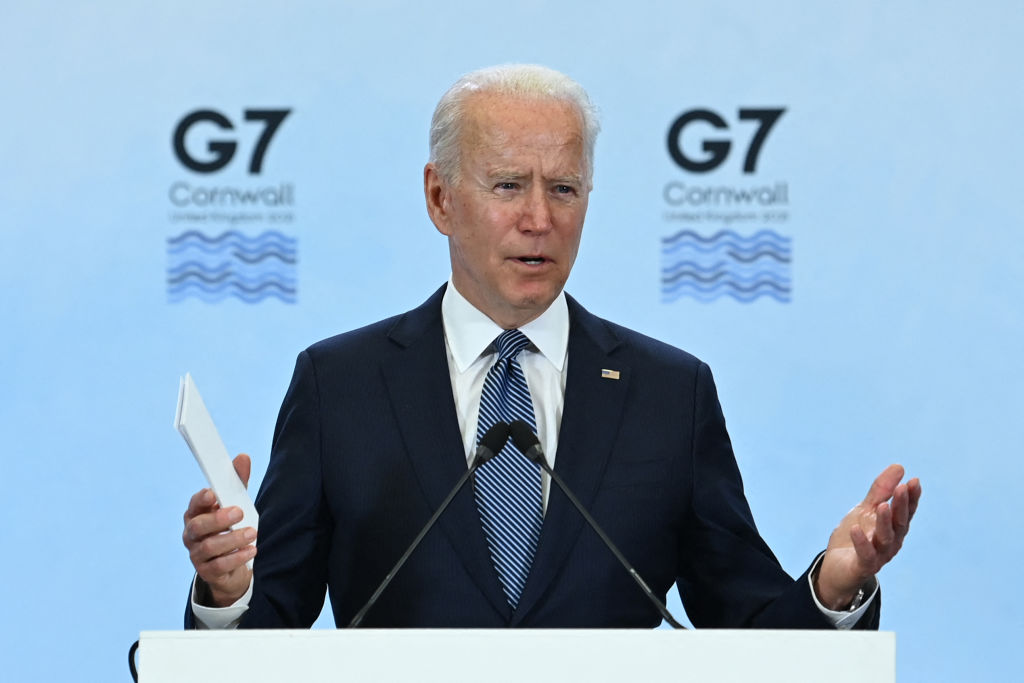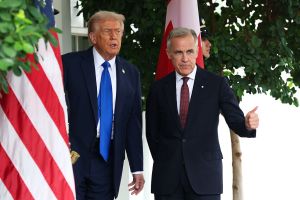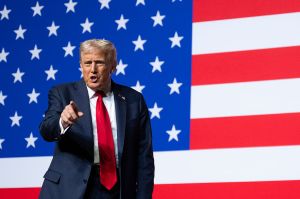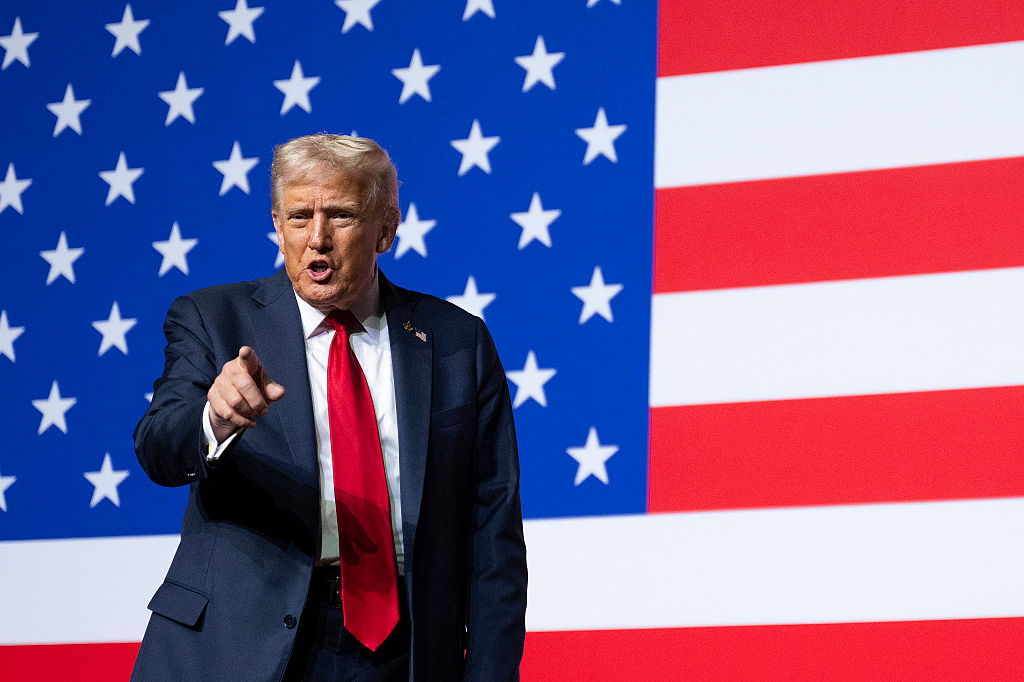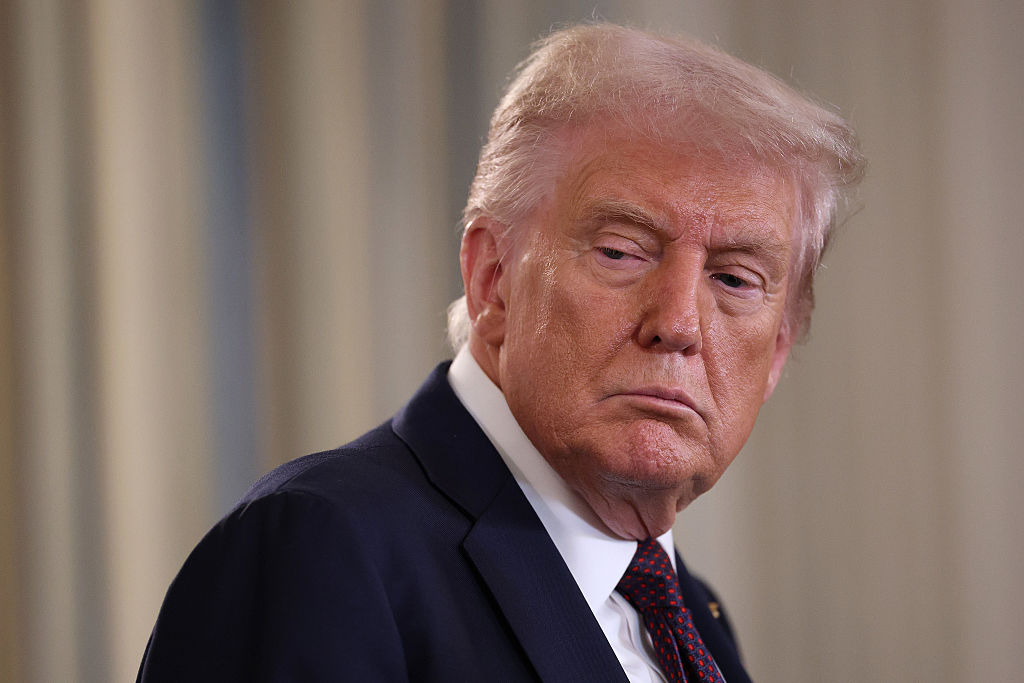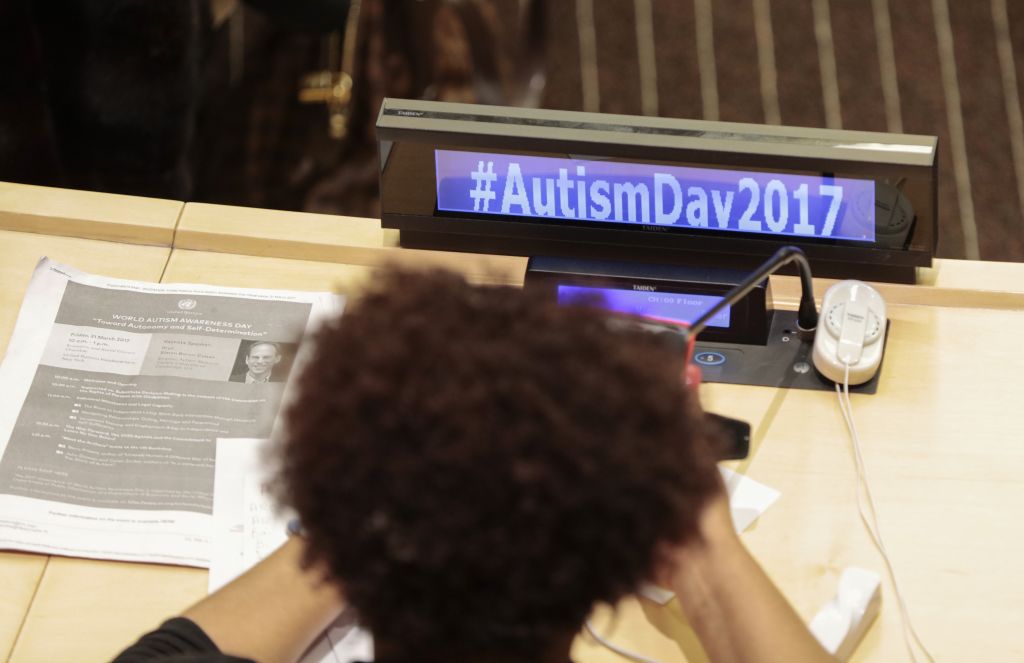‘America is back at the table,’ Joe Biden wants us to know. ‘Diplomacy is back.’ After four years of Donald Trump, the new President seems rather too desperate to tell the world that the United States is on their side. It all sounds very positive, but what has Biden’s return to the global table actually achieved? What, if anything, is he likely to achieve over the next four years?
Last month’s G7 summit in Cornwall, England, was full of grand talk of international cooperation, defending democratic values, confronting China and more. But the official communiqué is a sad reminder of what tends to be generated by these meetings: a cloying mixture of platitudes, promises that G7 leaders either have no way of keeping to or no intention of even trying to keep and noble-sounding but dishonest statements.
The leaderships told us: ‘We will work together as part of an ongoing agenda towards a trusted, values-driven digital ecosystem for the common good that enhances prosperity in a way that is sustainable, inclusive, transparent and human-centric.’ That is nonsense.
The G7 countries vow to reach net-zero emissions of greenhouse gases by 2050 at the latest — something which even John Kerry has admitted will be impossible without inventions which have not yet been invented — or a return to pre-industrial poverty.
‘We recognize the devastating and disproportionate impact of COVID-19 on women and girls,’ said the G7 statement. While it has long been the practice in these kinds of documents to claim that women have the worst of everything, it takes some gall to say this of a disease which has killed around 40 percent more men than it has women.
Events such as the G7 are no doubt good for the egos of the leaders involved. The cant also serves to deflect attention from troubles at home. Statesmen relish opportunities to leave behind an economic crisis and pose on the global stage. Biden seems no exception, although he was still notably grouchy and listless in his sporadic and staged interactions with the press.
It is less than obvious what Biden’s collegial approach to international affairs has to offer over Donald Trump’s more acerbic diplomacy. For a man whom many consider to be a pariah, Trump ended up achieving a lot. For all the conflict-resolution attempted by earnest, well-meaning presidents such as Jimmy Carter and Barack Obama, they left the Middle East in a worse state than when they took office.
Trump, by contrast, was denounced as a warmonger — and yet became the first president in modern times not to be sucked into a foreign war. Moreover, he achieved the diplomatic coup of persuading four Arab states to recognize Israel, as well as dialing down tensions between North Korea and the west. In the case of Kim Jong-un, Trump succeeded where others had failed because he instinctively understood what made the dictator tick. He was able to appeal to Kim’s vanity and so pull him back from the brink. With Iran, Trump managed to strike — ordering the assassination of Qasem Soleimani — without triggering an all-out war. He then took Iran’s halfhearted retaliations on the chin, thus depriving Iran of a malign asset while allowing both sides to back down without wider conflict. Afterwards, Iranian attacks on western ships in the Gulf declined. Trump was lucky, no doubt, but he was original in his approach to foreign affairs — and bold.
Biden cannot be called original. He has yet to be tested, but his brief meeting with Vladimir Putin in Geneva does not inspire confidence in his ability to handle dictators. At the press conference following the meeting, the Russian leader was asked what he saw when he looked into Biden’s eyes — a reply to Biden’s comment that when he looked into Putin’s eyes, he saw no soul. Putin said he saw ‘a very well-balanced, professional man’: a statesmanlike way of telling the world that he regards Biden as a pushover.
Trump’s secret weapon in dealing with the hard men of global politics was his sheer Nixonian unpredictability. Biden’s record so far suggests he will, as Putin says, be ‘predictable’. He will sit down with democratic leaders of friendly nations and issue worthy and meaningless statements on climate change and gender equality. He will then go off and attempt to talk to foreign rivals and adversaries as if he were a therapist trying to rehabilitate lost souls. By the end of Biden’s presidency, Putin will probably not be eagerly discussing targets for gender equality and cutting carbon emissions. He is more likely to be merrily taking bites out of a few more of Russia’s neighboring lands, as he did with Crimea in Obama’s time.
‘Cooperation’ is one of those words which has very few negative connotations for most people. It is central to everything Biden has ever wanted to achieve in politics. When it is your job to broker a deal between senators in opposing political parties it is useful to, as politicians love to say, ‘reach across the aisle’. But the presidency is a very different job. A president can succeed by having a vision, like Franklin D. Roosevelt, or by being a disruptor, like Ronald Reagan. It is not enough, though, to be a collegial figure who enjoys bringing people together. On current evidence, we face four years of terribly well-meaning communiqués, at the end of which the media will say that America’s brand has been detoxified. Just don’t expect any meaningful solutions to the world’s biggest problems.
This article was originally published in The Spectator’s July 2021 World edition.



